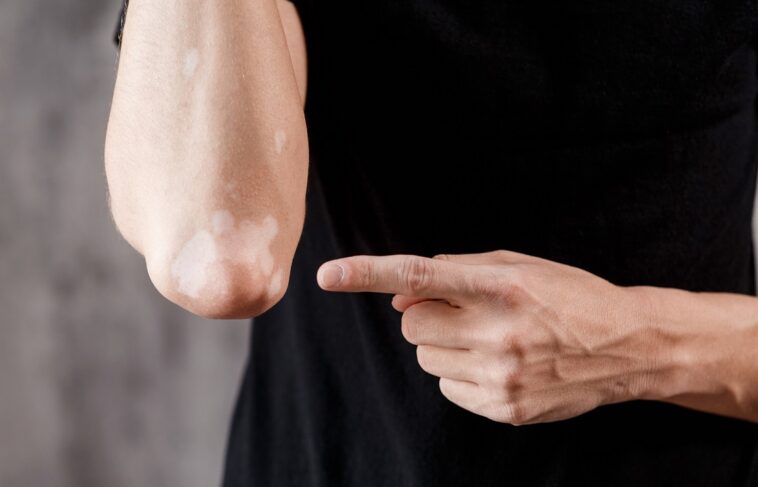If you think about it – vitiligo is just a skin condition characterized by depigmentation that can affect any part of the body. It is certainly more noticeable in people with darker skin, including me. The outer appearance experience of living with vitiligo is so often talked about that we forget what kind of pain and trauma it can bring to those affected by it.
When I started getting patches all over my body, my mother could not understand why everyone around me was bothered about my patches. It was terrible for her as much as for me, a constant reminder by people that I was losing my attractiveness. What was more confusing in the initial years of living with vitiligo was that I thought that the skin condition just made me who I was. I was tall, had a nice smile. I was still the funniest man in the ground. But, as soon as my patches grew everyone started only seeing me as a guy with vitiligo. It’s like my entire identity—the complex human being I am—was reduced to a skin condition.
Many South Asian countries go by the system of arranged marriages. And, rejection by prospective bride/grooms only makes it worse. I was reduced to a vitiligo-ed man when talks of marriage came up in these arranged marriage situations. Suddenly, my qualifications and skills were immediately excluded from my matrimonial resume. It felts as if my wit was not enough for any family that came with a marriage proposal. My cousins that were certainly jealous of my success, started rejoicing the fact that everyone was rejecting me on the matrimonial front, left right, and center.
So, where does the problem lie?
To begin with, the standards of beauty in the South Asian community have always been problematic. Nothing revolutionary can be expected from a society where an unhealthy obsession for lighter skin is quite prevalent. After years of living with vitiligo, I can reflect on how South Asian prescriptions of beauty not only shaped but also fragmented my sense of self, constantly succumbing to and subverting the discrete categories placed on my identity.
It was this unrealistic expectation of beauty, that indirectly led to my mother being bombarded with unsolicited advice on various vitiligo treatment options. I was told how it would be difficult for me to find a ‘suitable’ match if my vitiligo was left untreated. According to South Asian standards, it came down to two things: first that I was no longer the “good-looking face” I once was, and second “Who will marry a boy with vitiligo?” The need to conform to these standards has become such an issue that many with vitiligo, end up signing up for the majority of treatments for vitiligo that have risks and can prove to be harmful in the future.
What worked for me?
The only way to find yourself attractive is by discovering your version of beauty. Throughout my initial years with vitiligo, I hid behind conservative clothing, using my introvert identity as justification when in reality I wanted to hide the extent of my vitiligo. Long before I realized that this humiliation (which I now understand was absolutely uncalled for) got ingrained in me and was a result of the obsession with beauty that was imposed on me by those around me.
Through all this, I could hardly find anyone supportive, I thank these experiences of stigmatization that only made me realize that my own self-acceptance of having vitiligo and being somewhat at ease in my own skin was my only ticket to self-acceptance. It took me many years to digest what I told me about my patches and many more years to recognize and deal with all the insecurities I had developed as a result of the constant indirect shaming for living with vitiligo as if it was my choice in the first place. But this self-awareness of “what is happening, why” only brought me today to say “I didn’t choose to live with vitiligo, but I would hate or let anyone hate me for it. It doesn’t define me, but it is still an integral part of my visual identity – something I cannot be bullied into feeling sorry about.”

